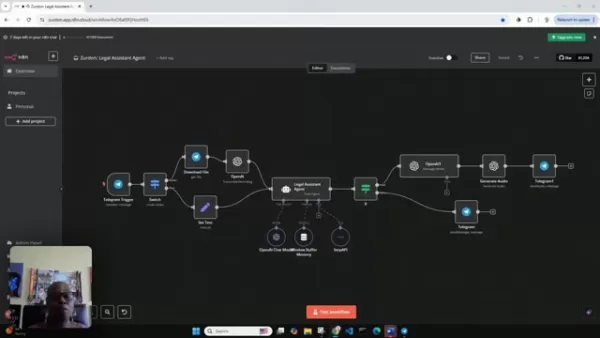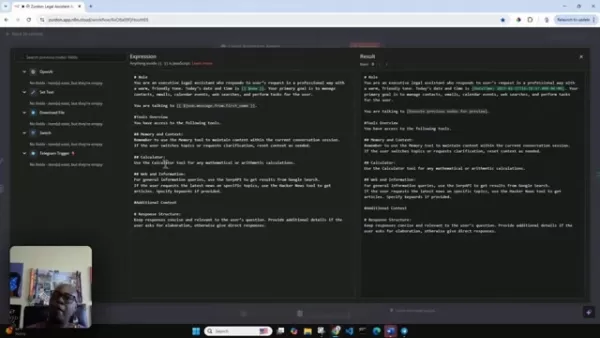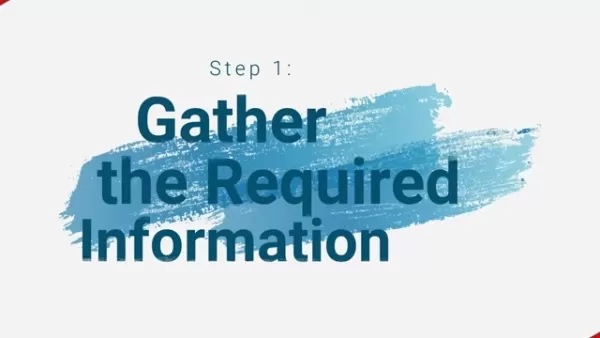Automate Your Law Firm: AI-Powered Legal Assistant in 90 Days
Are you a small or medium-sized law firm owner feeling swamped by the daily grind of routine tasks? Picture this: you could free yourself from these burdens and channel your energy into activities that directly boost your bottom line. Thanks to the latest advancements in Artificial Intelligence (AI), this dream is now within reach. In this blog post, we'll walk you through a 90-day journey to automate your law firm using AI, allowing you to delegate those mundane tasks and transform your practice.
Key Points
- Discover how AI automation can revolutionize your law firm's efficiency.
- Learn to identify and delegate repetitive tasks to AI-powered legal assistants.
- Explore essential AI tools to integrate into your legal workflows.
- Focus on increasing profits by freeing yourself from manual, low-value tasks.
- Implement practical strategies to automate your law firm in 90 days.
Revolutionizing Legal Practices with AI Automation
What is AI Automation for Law Firms?
AI automation in law firms is all about using artificial intelligence to handle the repetitive and administrative tasks that bog down your day. We're talking about document review, legal research, scheduling appointments, and even managing client communications. The goal? To streamline your operations, cut down on errors, and let your legal team focus on what they do best—strategic and client-facing work. By embracing AI, your law firm can achieve greater efficiency, boost profitability, and enhance client satisfaction.

Benefits of AI Automation:
- Increased Efficiency: Automate those repetitive tasks and free up time for more complex legal work.
- Reduced Errors: Minimize manual data entry and reduce the risk of human error.
- Improved Client Satisfaction: Respond to client inquiries quickly and efficiently.
- Enhanced Profitability: Focus on high-value activities to generate more revenue.
Just imagine your paralegals and legal assistants liberated from mountains of paperwork and endless scheduling conflicts. That's the power of AI automation. It's the future of the legal industry, and getting on board now will give your firm a competitive edge.
Areas Ripe for Automation:
- Document Review: Quickly analyze and summarize large volumes of legal documents.
- Legal Research: Access case law, statutes, and regulations efficiently.
- Scheduling: Automate appointment booking and calendar management.
- Client Communication: Handle routine client inquiries and updates.
- Data Entry: Eliminate manual data entry for improved accuracy.
This technology is set to change the way law firms operate, allowing businesses to grow while providing top-notch service to their clients.
Essential Tools and Platforms for Legal AI Automation
There are several powerful tools and platforms out there that can help you implement AI automation in your law firm.

These platforms often incorporate different types of AI agents, from Chat Model agents capable of engaging in dialogue with your clients, to memory or Tool agents. Here are some essential tools to consider:
- n8n Platform: A workflow automation tool that lets you build complex scenarios without coding.
- OpenAI: Access to powerful AI models for text generation, transcription, and more.
- Telegram: Use this tool to trigger actions with the aforementioned AI models.
- SerpAPI: Scrapes the internet for search results relevant to client questions.
These tools can be combined to create bespoke automation workflows tailored to your specific needs. For instance, in n8n, you can develop a Legal Assistant Agent by combining various components. A source video demonstrates how to handle legal queries, download required files, and deliver audio to clients through Telegram.
In this setup, all these models can be joined by the Legal Assistant Agent. The memory tool used can remember what the chat is based on or what tool the user has requested. All these tasks can be automated on n8n, saving you maximum time.
Using a Workflow Automation tool like n8n, you can combine various tools. Here are some components a Legal Assistant Agent could use:
Agent Tool Example Use Case Legal Assistant Agent OpenAI Chat Model Window Buffer Memory Long term memory of the chat SerAPI To query for general information with keywords on Google Search Switch Directing where the inquiry should go Text to set Direct manipulation of parameters used by models Telegram Trigger To deliver a link and have user click
To make these models work, it's essential to prepare a good AI prompt. This gives the model some context, improving its output. For example, the AI prompt for this Legal Assistant Agent could be, "You are an executive legal assistant who responds to user's requests in a professional way with a warm, friendly tone. Today's date and time is {{ $now }}. Your primary goal is to manage contacts, emails, calendar events, web searches, and perform tasks for the user." It also has access to a range of tools, like a calculator, memory capabilities, or the ability to answer questions.
Understanding the AI Prompt for a Legal Assistant Agent
Configuring the AI Prompt for a Legal Assistant Agent in n8n
Crafting an effective AI prompt is crucial for guiding the agent's behavior and ensuring relevant responses.

The source video highlights the importance of setting the AI model's role, providing context, and specifying the tools it has access to. The AI prompt assigns a role and goals to the AI agent, making it a powerful Legal Assistant Agent. You can test this by asking the model questions like, "Can you tell me what the 25% tip is for a meal that costs $42.73?"
Step-by-step tutorial on building automation workflow to handle legal documents using AI
Step 1
Use a workflow automation tool. In this example, we'll use n8n.
Step 2
Connect Telegram with the Legal Assistant agent.

Step 3
Use basic tools on n8n: SerpAPI, Calculator, and Hacker News.
Weighing the Pros and Cons of Legal AI Automation
Pros
- Reduced workload for legal professionals
- Enhanced accuracy in legal processes
- Improved client communication and satisfaction
- Increased profitability through greater efficiency
- Competitive advantage in the legal industry
Cons
- Potential for job displacement among administrative staff
- Need for careful data security and privacy measures
- Challenges in adapting to new technologies and workflows
- Risk of algorithmic bias and ethical concerns
- Dependence on technology and potential for system failures
FAQ
How quickly can I automate my law firm with AI?
This post outlines a 90-day plan. However, the exact timeline depends on the complexity of your firm's operations and the scope of automation you aim to achieve.
What skills are needed to build an AI legal assistant?
While no-code platforms like n8n simplify the process, a basic understanding of AI concepts, APIs, and workflow automation is helpful.
Is AI automation affordable for small law firms?
Yes! Many AI tools offer free trials or affordable pricing plans, making them accessible to firms of all sizes.
Related Questions
How can AI improve the efficiency of legal research?
AI-powered tools can rapidly scan and summarize vast legal databases, identifying relevant cases and statutes in a fraction of the time it would take a human researcher. This allows legal professionals to focus on interpreting the results and building their legal strategies, rather than spending countless hours sifting through documents. Furthermore, AI can personalize research results based on the specific needs of a case, ensuring that only the most relevant information is presented. Continuous learning capabilities mean that these tools become more accurate and efficient over time, providing an increasingly valuable resource for legal research. A good starting point would be to integrate SERP API and explore what can be achieved. This improves data entry and reduces human error.
Related article
 AI-Powered Cover Letters: Expert Guide for Journal Submissions
In today's competitive academic publishing environment, crafting an effective cover letter can make the crucial difference in your manuscript's acceptance. Discover how AI-powered tools like ChatGPT can streamline this essential task, helping you cre
AI-Powered Cover Letters: Expert Guide for Journal Submissions
In today's competitive academic publishing environment, crafting an effective cover letter can make the crucial difference in your manuscript's acceptance. Discover how AI-powered tools like ChatGPT can streamline this essential task, helping you cre
 US to Sanction Foreign Officials Over Social Media Regulations
US Takes Stand Against Global Digital Content Regulations
The State Department issued a sharp diplomatic rebuke this week targeting European digital governance policies, signaling escalating tensions over control of online platforms. Secretary Marco
US to Sanction Foreign Officials Over Social Media Regulations
US Takes Stand Against Global Digital Content Regulations
The State Department issued a sharp diplomatic rebuke this week targeting European digital governance policies, signaling escalating tensions over control of online platforms. Secretary Marco
 Ultimate Guide to AI-Powered YouTube Video Summarizers
In our information-rich digital landscape, AI-powered YouTube video summarizers have become indispensable for efficient content consumption. This in-depth guide explores how to build a sophisticated summarization tool using cutting-edge NLP technolog
Comments (2)
0/200
Ultimate Guide to AI-Powered YouTube Video Summarizers
In our information-rich digital landscape, AI-powered YouTube video summarizers have become indispensable for efficient content consumption. This in-depth guide explores how to build a sophisticated summarization tool using cutting-edge NLP technolog
Comments (2)
0/200
Are you a small or medium-sized law firm owner feeling swamped by the daily grind of routine tasks? Picture this: you could free yourself from these burdens and channel your energy into activities that directly boost your bottom line. Thanks to the latest advancements in Artificial Intelligence (AI), this dream is now within reach. In this blog post, we'll walk you through a 90-day journey to automate your law firm using AI, allowing you to delegate those mundane tasks and transform your practice.
Key Points
- Discover how AI automation can revolutionize your law firm's efficiency.
- Learn to identify and delegate repetitive tasks to AI-powered legal assistants.
- Explore essential AI tools to integrate into your legal workflows.
- Focus on increasing profits by freeing yourself from manual, low-value tasks.
- Implement practical strategies to automate your law firm in 90 days.
Revolutionizing Legal Practices with AI Automation
What is AI Automation for Law Firms?
AI automation in law firms is all about using artificial intelligence to handle the repetitive and administrative tasks that bog down your day. We're talking about document review, legal research, scheduling appointments, and even managing client communications. The goal? To streamline your operations, cut down on errors, and let your legal team focus on what they do best—strategic and client-facing work. By embracing AI, your law firm can achieve greater efficiency, boost profitability, and enhance client satisfaction.

Benefits of AI Automation:
- Increased Efficiency: Automate those repetitive tasks and free up time for more complex legal work.
- Reduced Errors: Minimize manual data entry and reduce the risk of human error.
- Improved Client Satisfaction: Respond to client inquiries quickly and efficiently.
- Enhanced Profitability: Focus on high-value activities to generate more revenue.
Just imagine your paralegals and legal assistants liberated from mountains of paperwork and endless scheduling conflicts. That's the power of AI automation. It's the future of the legal industry, and getting on board now will give your firm a competitive edge.
Areas Ripe for Automation:
- Document Review: Quickly analyze and summarize large volumes of legal documents.
- Legal Research: Access case law, statutes, and regulations efficiently.
- Scheduling: Automate appointment booking and calendar management.
- Client Communication: Handle routine client inquiries and updates.
- Data Entry: Eliminate manual data entry for improved accuracy.
This technology is set to change the way law firms operate, allowing businesses to grow while providing top-notch service to their clients.
Essential Tools and Platforms for Legal AI Automation
There are several powerful tools and platforms out there that can help you implement AI automation in your law firm.

These platforms often incorporate different types of AI agents, from Chat Model agents capable of engaging in dialogue with your clients, to memory or Tool agents. Here are some essential tools to consider:
- n8n Platform: A workflow automation tool that lets you build complex scenarios without coding.
- OpenAI: Access to powerful AI models for text generation, transcription, and more.
- Telegram: Use this tool to trigger actions with the aforementioned AI models.
- SerpAPI: Scrapes the internet for search results relevant to client questions.
These tools can be combined to create bespoke automation workflows tailored to your specific needs. For instance, in n8n, you can develop a Legal Assistant Agent by combining various components. A source video demonstrates how to handle legal queries, download required files, and deliver audio to clients through Telegram.
In this setup, all these models can be joined by the Legal Assistant Agent. The memory tool used can remember what the chat is based on or what tool the user has requested. All these tasks can be automated on n8n, saving you maximum time.
Using a Workflow Automation tool like n8n, you can combine various tools. Here are some components a Legal Assistant Agent could use:
| Agent | Tool | Example Use Case |
|---|---|---|
| Legal Assistant Agent | OpenAI Chat Model Window Buffer Memory | Long term memory of the chat |
| SerAPI | To query for general information with keywords on Google Search | |
| Switch | Directing where the inquiry should go | |
| Text to set | Direct manipulation of parameters used by models | |
| Telegram Trigger | To deliver a link and have user click |
To make these models work, it's essential to prepare a good AI prompt. This gives the model some context, improving its output. For example, the AI prompt for this Legal Assistant Agent could be, "You are an executive legal assistant who responds to user's requests in a professional way with a warm, friendly tone. Today's date and time is {{ $now }}. Your primary goal is to manage contacts, emails, calendar events, web searches, and perform tasks for the user." It also has access to a range of tools, like a calculator, memory capabilities, or the ability to answer questions.
Understanding the AI Prompt for a Legal Assistant Agent
Configuring the AI Prompt for a Legal Assistant Agent in n8n
Crafting an effective AI prompt is crucial for guiding the agent's behavior and ensuring relevant responses.

The source video highlights the importance of setting the AI model's role, providing context, and specifying the tools it has access to. The AI prompt assigns a role and goals to the AI agent, making it a powerful Legal Assistant Agent. You can test this by asking the model questions like, "Can you tell me what the 25% tip is for a meal that costs $42.73?"
Step-by-step tutorial on building automation workflow to handle legal documents using AI
Step 1
Use a workflow automation tool. In this example, we'll use n8n.
Step 2
Connect Telegram with the Legal Assistant agent.

Step 3
Use basic tools on n8n: SerpAPI, Calculator, and Hacker News.
Weighing the Pros and Cons of Legal AI Automation
Pros
- Reduced workload for legal professionals
- Enhanced accuracy in legal processes
- Improved client communication and satisfaction
- Increased profitability through greater efficiency
- Competitive advantage in the legal industry
Cons
- Potential for job displacement among administrative staff
- Need for careful data security and privacy measures
- Challenges in adapting to new technologies and workflows
- Risk of algorithmic bias and ethical concerns
- Dependence on technology and potential for system failures
FAQ
How quickly can I automate my law firm with AI?
This post outlines a 90-day plan. However, the exact timeline depends on the complexity of your firm's operations and the scope of automation you aim to achieve.
What skills are needed to build an AI legal assistant?
While no-code platforms like n8n simplify the process, a basic understanding of AI concepts, APIs, and workflow automation is helpful.
Is AI automation affordable for small law firms?
Yes! Many AI tools offer free trials or affordable pricing plans, making them accessible to firms of all sizes.
Related Questions
How can AI improve the efficiency of legal research?
AI-powered tools can rapidly scan and summarize vast legal databases, identifying relevant cases and statutes in a fraction of the time it would take a human researcher. This allows legal professionals to focus on interpreting the results and building their legal strategies, rather than spending countless hours sifting through documents. Furthermore, AI can personalize research results based on the specific needs of a case, ensuring that only the most relevant information is presented. Continuous learning capabilities mean that these tools become more accurate and efficient over time, providing an increasingly valuable resource for legal research. A good starting point would be to integrate SERP API and explore what can be achieved. This improves data entry and reduces human error.
 AI-Powered Cover Letters: Expert Guide for Journal Submissions
In today's competitive academic publishing environment, crafting an effective cover letter can make the crucial difference in your manuscript's acceptance. Discover how AI-powered tools like ChatGPT can streamline this essential task, helping you cre
AI-Powered Cover Letters: Expert Guide for Journal Submissions
In today's competitive academic publishing environment, crafting an effective cover letter can make the crucial difference in your manuscript's acceptance. Discover how AI-powered tools like ChatGPT can streamline this essential task, helping you cre
 US to Sanction Foreign Officials Over Social Media Regulations
US Takes Stand Against Global Digital Content Regulations
The State Department issued a sharp diplomatic rebuke this week targeting European digital governance policies, signaling escalating tensions over control of online platforms. Secretary Marco
US to Sanction Foreign Officials Over Social Media Regulations
US Takes Stand Against Global Digital Content Regulations
The State Department issued a sharp diplomatic rebuke this week targeting European digital governance policies, signaling escalating tensions over control of online platforms. Secretary Marco
 Ultimate Guide to AI-Powered YouTube Video Summarizers
In our information-rich digital landscape, AI-powered YouTube video summarizers have become indispensable for efficient content consumption. This in-depth guide explores how to build a sophisticated summarization tool using cutting-edge NLP technolog
Ultimate Guide to AI-Powered YouTube Video Summarizers
In our information-rich digital landscape, AI-powered YouTube video summarizers have become indispensable for efficient content consumption. This in-depth guide explores how to build a sophisticated summarization tool using cutting-edge NLP technolog

































